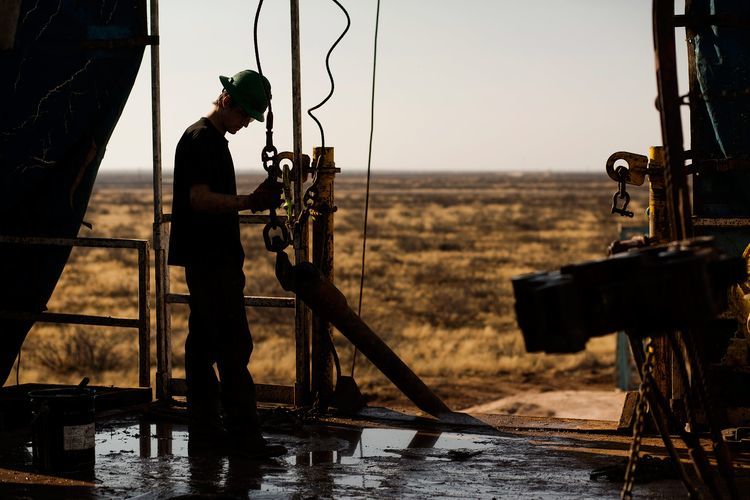
Oil traded near $42 a barrel as U.S. drilling increased at the fastest pace in almost a year.
Futures gained 0.3 percent in New York after rising 0.3 percent Friday. Drillers added rigs for a sixth week, boosting the count to 381, for the longest run of gains since Aug. 28, according to data from Baker Hughes Inc. OPEC nations aren’t pushing to revive the aborted April agreement with non-members to freeze oil output, according to two delegates from the group.
Oil is fluctuating after tumbling more than 20 percent into a bear market and closing below $40 a barrel last week for the first time in almost four months. U.S. drilling is expanding as nationwide crude stockpiles continue to rise, keeping stockpiles more than 100 million barrels above the five-year average.
“The worst of the selloff looks over,” said Angus Nicholson, a market analyst in Melbourne at IG Ltd. “Sentiment has turned after prices dropped below $40, with the wave of short covering giving oil a boost. In the near-term, $45 a barrel is probably going to be the next key level to watch.”
West Texas Intermediate for September delivery was at $41.94 a barrel on the New York Mercantile Exchange, up 14 cents, at 1:56 p.m. Hong Kong time. The contract fell 13 cents to $41.80 on Friday. Total volume traded was about 36 percent below the 100-day average.
Rig Count
Brent for October settlement was 14 cents higher at $44.41 a barrel on the London-based ICE Futures Europe exchange. Prices lost 2 cents to $44.27 on Friday. The global benchmark traded at a premium of $1.69 to WTI for October.
For a story on hedge fund positioning on oil, click here.
U.S. drillers added seven rigs during the week ended Aug. 5, Baker Hughes said Friday. The count is at the highest level since March. The nation’s crude stockpiles increased for a second week to 522.5 million barrels through July 29, keeping supplies at the most in at least two decades.
Oil-market news:
While members of the Organization of Petroleum Exporting Countries always intended to discuss the oil market and potential cooperation with other producers when they gather for the International Energy Forum in Algiers next month, there are no plans to renew the freeze, the delegates said, asking not to be identified because the information isn’t public. Libya has started maintenance work at Es Sider port, the nation’s largest oil export terminal, as part of plans to increase output from Africa’s biggest holder of crude reserves. China’s crude imports fell to the lowest level in six months as demand from independent refineries eased. Net fuel exports surged to a record.
Recommended for you
